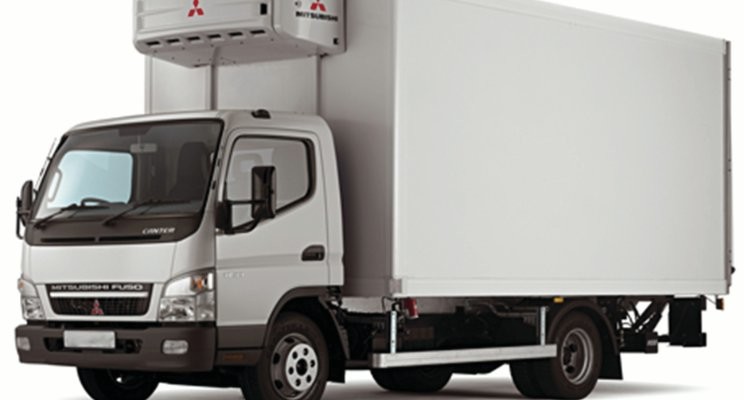Top Transport Refrigeration Companies Providing Advanced Cold Chain Solutions
Top Transport Refrigeration Companies Providing Advanced Cold Chain Solutions
Blog Article
A Thorough Overview of the Mechanisms Behind Refrigerated Vehicle Transport and Its Duty in Food Security
Chilled vehicle transport is important in preserving food safety and security, employing advanced temperature level control mechanisms and insulation technologies to guard disposable goods during transit. What effects do these aspects have for the future of food safety?
Relevance of Refrigerated Transportation
Cooled transportation plays an important function in preserving the stability and security of perishable products throughout the supply chain (transport refrigeration companies). This specific logistics system is vital for protecting the quality of food, including fresh produce, dairy products, meats, and fish and shellfish, which are at risk to spoilage when revealed to temperature level changes. The capacity to preserve a regulated and regular atmosphere makes certain that these items retain their nutritional value, taste, and safety for customers
Furthermore, chilled transport reduces the dangers of foodborne health problems, which can emerge from the development of unsafe germs in improperly kept products. By adhering to rigorous temperature level demands, companies not just abide by regulatory requirements yet also foster customer depend on and brand name integrity. The economic ramifications are considerable; decreased perishing rates translate to lower losses for vendors and retailers, adding to general profitability.
Moreover, the increasing international demand for top notch and fresh foodstuff further highlights the relevance of cooled transportation. As supply chains become extra complicated and expand worldwide, the need for efficient temperature-controlled logistics remains to expand, underpinning the entire food distribution network and making sure that disposable items reach their destinations securely and effectively.
Temperature Control Devices
Maintaining optimal temperature level control is essential in the transport of disposable products, and a selection of devices are employed to achieve this objective. Cooled vehicles make use of advanced refrigeration systems, mostly making use of vapor compression technology, which distributes cooling agent via evaporator and condenser coils to draw out warmth from the freight location. This procedure makes sure that the interior stays continually trendy, therefore protecting the high quality and security of the items being carried.
Additionally, trucks are geared up with temperature level monitoring systems that supply real-time information on the interior environment. These systems frequently include digital sensors and alarms to sharp drivers in situation of temperature level variations, enabling prompt rehabilitative activities. Some cooled trucks likewise include programmable temperature level setups, permitting precise control customized to details kinds of freight, such as fruits, vegetables, or drugs.
Furthermore, making use of pre-cooling techniques prior to loading improves the efficiency of temperature level control. By decreasing the cargo location's temperature prior to the introduction of products, the risk of temperature level spikes during transportation is lessened. These devices jointly add to a trusted cold chain, important for preserving the integrity and safety and security of perishable food things throughout the transport procedure.
Insulation Technologies
Insulation innovations play an important duty in boosting the efficiency of chilled vehicle transportation by lessening thermal exchange in between the cargo area and the external environment. Reliable insulation is important for keeping the required temperature level for perishable products, consequently guaranteeing food safety and security and top quality throughout transportation.
Common insulation materials utilized in chilled vehicles include polyurethane foam, polystyrene, and fiberglass, each offering varying degrees of thermal resistance. Polyurethane foam, understood for its superior protecting residential properties, is frequently used as stiff panels that can be molded to fit the vehicle's interior.

Advanced Monitoring Equipment
To guarantee the integrity of disposable items throughout transportation, advanced monitoring systems have emerged as a critical innovation in the refrigerated truck sector - transport refrigeration companies. These systems use a mix of sensors, information loggers, and real-time monitoring innovations to constantly keep an eye on temperature, humidity, and total freight conditions throughout the journey. By supplying instant feedback on ecological variables, these systems permit prompt corrective actions, thus securing product top quality
Modern keeping track of systems are equipped with wireless connection, enabling seamless information transmission to logistical centers and stakeholders. This connectivity facilitates remote monitoring, which is important for preserving compliance with sector guidelines and requirements. Alerts can be created in real-time, alerting operators of any type of inconsistencies from pre-set thresholds, hence reducing the danger of putridity.
Moreover, the integration of advanced analytics and artificial intelligence algorithms enhances predictive capacities, allowing for better preparation and risk evaluation. Historic data collected from these systems can inform future transportation methods, optimizing routes and minimizing potential hazards. In general, the deployment of sophisticated surveillance systems represents a significant development in the cooled transport sector, enhancing the commitment to maintaining the top quality and security of perishable items throughout their trip.
Impact on Food Safety And Security Standards
The combination great site of innovative surveillance systems in cooled truck transportation has considerably influenced food security criteria across the supply chain. These systems allow real-time tracking of temperature, humidity, and various other important criteria essential for preserving the integrity of perishable items. By ensuring that items continue to be within specified temperature arrays throughout transit, these modern technologies minimize the risk of microbial growth and putridity, which are critical in food security.

The fostering of information analytics likewise allows for proactive decision-making, making it possible for companies to identify potential concerns before they escalate into food safety infractions. As an outcome, the unification of innovative surveillance systems not just enhances functional performance yet also cultivates greater accountability in the food supply chain. This advancement highlights the critical function of modern technology in raising food security requirements and ensuring consumer self-confidence in the items they obtain.
Verdict
To conclude, cooled vehicle transportation is crucial for keeping food security through efficient temperature level control, advanced insulation innovations, and continuous surveillance systems. These mechanisms function synergistically to maintain the top quality of subject to spoiling products and minimize the danger of foodborne health problems. Adherence to rigorous food safety and security standards is accomplished through the application of these technologies, highlighting the vital duty of chilled transport in the food supply chain and its effect on public health and wellness.
Refrigerated vehicle transport is indispensable in maintaining food safety, using innovative temperature control systems and insulation technologies to protect disposable items during transportation - cold transport companies. Proper upkeep of insulation integrity, consisting of normal checks for wear or damages, is likewise important to receive the effectiveness of refrigerated transport systems and make certain compliance with food safety and security laws
The integration of advanced monitoring systems in cooled truck transport has considerably affected food security standards across the supply chain.In verdict, refrigerated vehicle transportation is essential for maintaining food security with efficient temperature level control, advanced insulation innovations, and continual monitoring systems. Adherence to stringent food safety standards is attained with the implementation of these innovations, highlighting the essential role of chilled transport in the food supply chain and its influence on public health and wellness.
Report this page